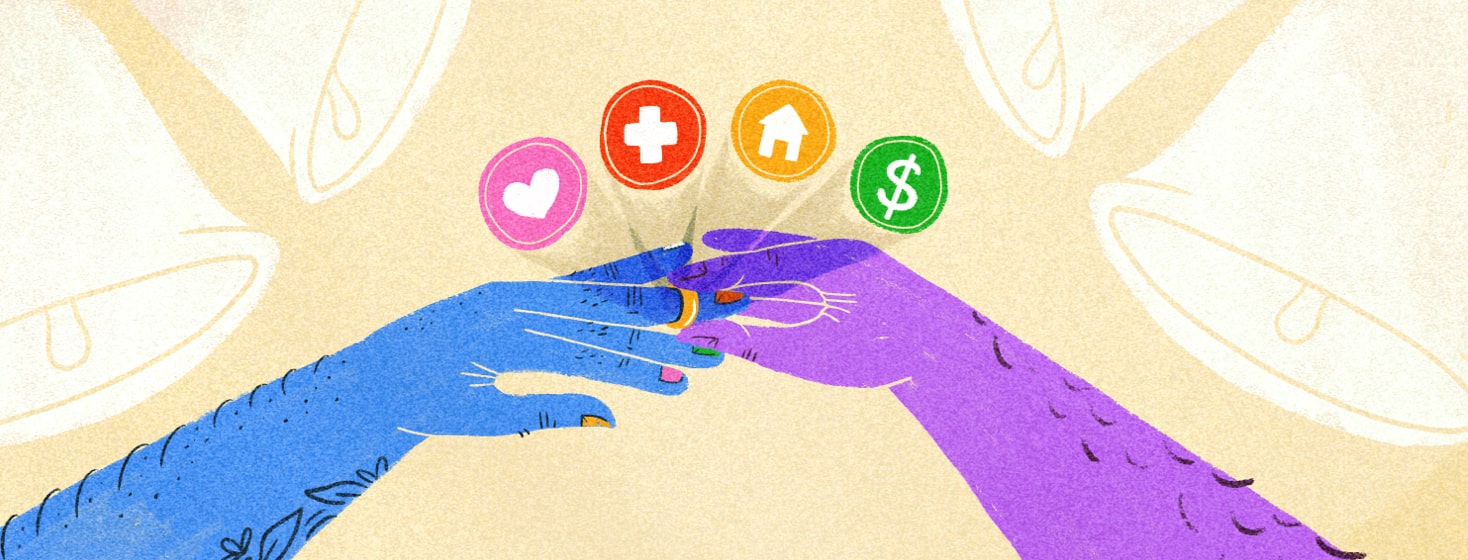We Got Married!
It gives me the creeps! No, I am not talking about blood being drawn from my elbow. Nor am I talking about a kidney biopsy. I am talking about the words, "medical power of attorney," "advance directives," and "HIPAA?" I hear these words every time I speak to someone at the hospital admissions desk. It just sends me into a dark place. Having lived through 2 near-death experiences, these topics make me sad. These words also make me think about my 18-year partnership and marriage to Matthew. Luckily, I know that the law is on my side.
The law is finally on our side
When the U.S. Supreme Court legalized same-sex marriage in 2015, I was ecstatic. First, I finally have the right to legally marry my partner. Second, I am a constitutional law and U.S. Supreme Court nerd. I was overblown watching equal rights reach an unprecedented high point.
Even more so and as someone living with lupus, the legalization of same-sex marriage meant that Matthew and I were finally able to share benefits. Between 2004 and 2012, Matthew and I depended on the domestic partnership rights and benefits provided by my employer. Between 2013 and 2016, I worked under contract. My ACA insurance premiums were around $500 a month. The U.S. Supreme Court's decision came at an opportune time when we married in December 2015 because I could now receive benefits through my husband's employer. His employer had to legally recognize our union. The legalization of same-sex marriage decreased our financial burden.
Marriage means greater benefits
Marriage rights for the LGBTQ community, like the heterosexual community, also mean difficult decisions. My friend and fellow lupus warrior, Mike Gennari has not married his partner because marriage may impede the amount of income his partner may receive social security disability. Mike and his partner both went through very difficult surgeries in the last 2 years. Mike said that the surgeries were difficult financially because it mean one of them would have to be on unpaid leave.
Discrimination and health disparities are connected
Dr. William Buffie stated in his 2011 article in the American Journal of Public Health, "Public Health Implications of Same-Sex Marriage," that "significantly compromised health care delivery and adverse health outcomes are well documented for the lesbian, gay, bisexual, and transgender (LGBT) community in the United States compared with the population at large."1 According to Buffie, the LGBTQ community are subject to discrimination, "minority stress" and poorer health because of bias and prejudice in the healthcare system.
When I was in the emergency room in 2018, suffering from septic shock, the doctors asked my parents about the next of kin. I vaguely remember my parents arguing over the best way to get in contact with Matthew, who was at work. Matt's final arrival to the hospital saved my life because he and my family could make decisions on my behalf.
The legalization of same-sex marriage has improved my health. This event meant that doctors and hospitals could no longer push my husband out of the examination room. I no longer have to prove my love and our 18-year relationship to the medical community. Matt can enter the waiting room or my doctor's office without restriction. I am now free.

Join the conversation